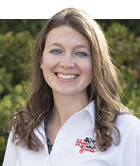
A full-time job comes with a number of benefits, one of the most valuable being health insurance coverage. While it may not be the most exciting membership card you carry in your wallet, having health care insurance can be priceless for taking care of yourself and avoiding catastrophic expenses in the face of a medical emergency.
Unfortunately, if you are a self-employed business owner, like most dairy farmers are, you don’t have the option to join a company’s health insurance plan. These individuals are left to navigate murky waters to secure coverage for themselves, their families, and possibly their employees.
Health insurance coverage is an asset to anyone, but those with pre-existing health issues or people working in dangerous occupations are especially vulnerable if left uncovered. Farmers too often fall into both of these categories.
“We know that agriculture is one of the most dangerous occupations,” said Florence Becot, an associate research scientist at the National Farm Medicine Center. “We also know it is an occupation of wear and tear on the body over time due to the physical nature of the work.”
During AgrAbility of Wisconsin’s Virtual Summit, Becot talked about the challenges farmers face when it comes to finding health coverage. She shared results of a 2017 study that found 60% of farm families had at least one member with a pre-existing condition, and 33% of the farm families had at least one family member with a health condition that made it difficult to farm. She said there were no differences between age groups.
“We know there are wide impacts of health challenges on quality of life for farmers and their families, their ability to work, and the farm business,” she said.
While health insurance can be difficult to secure, Becot said that farm families are making it a priority, and that nine in 10 farm families have some form of health insurance. The problem, though, is that this number masks the challenges people face to access this insurance, from working a second job to paying high rates for coverage or being underinsured.
A research and extension project funded by USDA found that 41% of farm families obtained health insurance through off-farm income. Another 36% went through public insurance options, such as Medicaid or Medicare. There were 33% who purchased a private policy, and the small remainder secured insurance through organizations such as Farm Bureau, healthcare sharing ministries, or staying on their parents’ plan if still eligible. Just over a quarter (27%) of farm families had more than one plan in order to insure all family members.
Becot said the average monthly premium for individuals or families in this survey was $750, but there was a very wide variation in price and coverage. The most expensive plans were those that were purchased on the insurance marketplace.
Families that had a member with health challenges were more likely to report medical debt greater than $1,000, but half of all participants — whether they had health challenges or not — were concerned about their ability to pay for major health care costs. A Wisconsin State Journal article shared that nationwide, 68% of all personal bankruptcies are connected to health and medical expenses.
“We know that health insurance can be expensive and difficult to navigate,” she noted. “We know that the cost of insurance is as much of a stressor as the cost of land.”
To learn more about the health insurance options available to farmers and resources to help select a policy, watch the AgrAbility of Wisconsin Virtual Summit presentation “Health insurance for farm families.”

The author is the senior associate editor and covers animal health, dairy housing and equipment, and nutrient management. She grew up on a dairy farm near Plymouth, Wis., and previously served as a University of Wisconsin agricultural extension agent. She received a master’s degree from North Carolina State University and a bachelor’s from the University of Wisconsin-Madison.